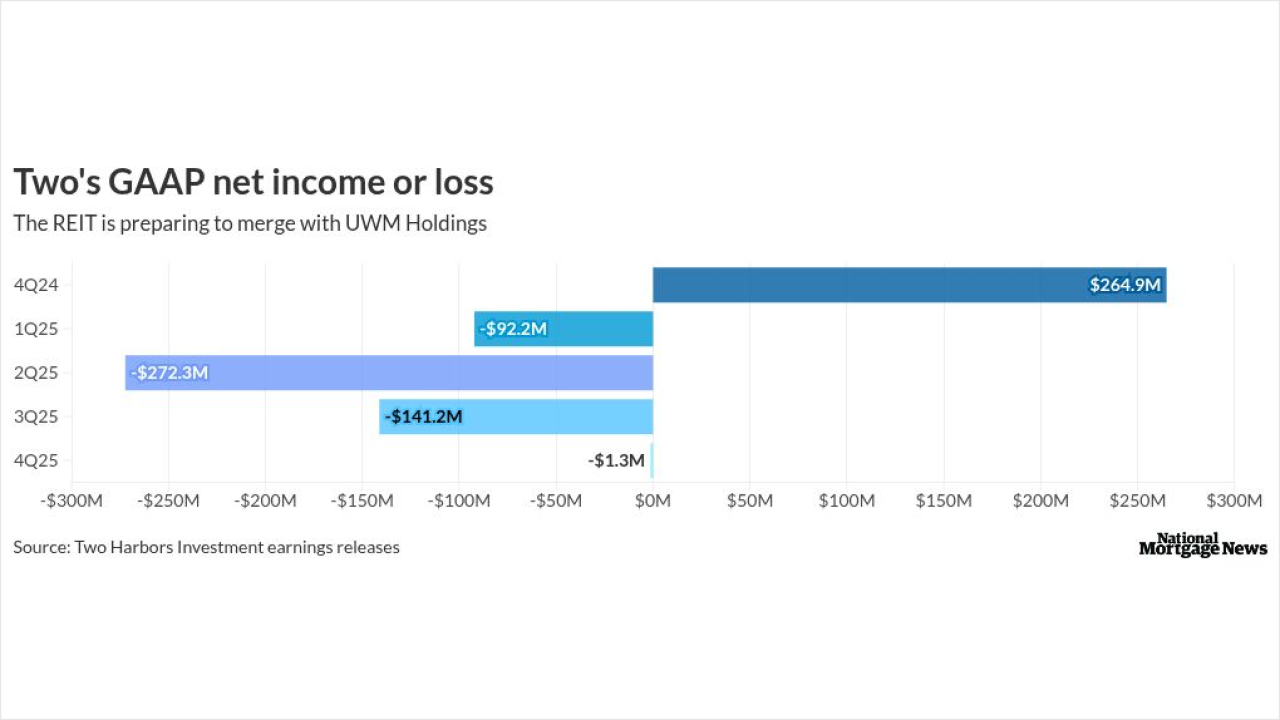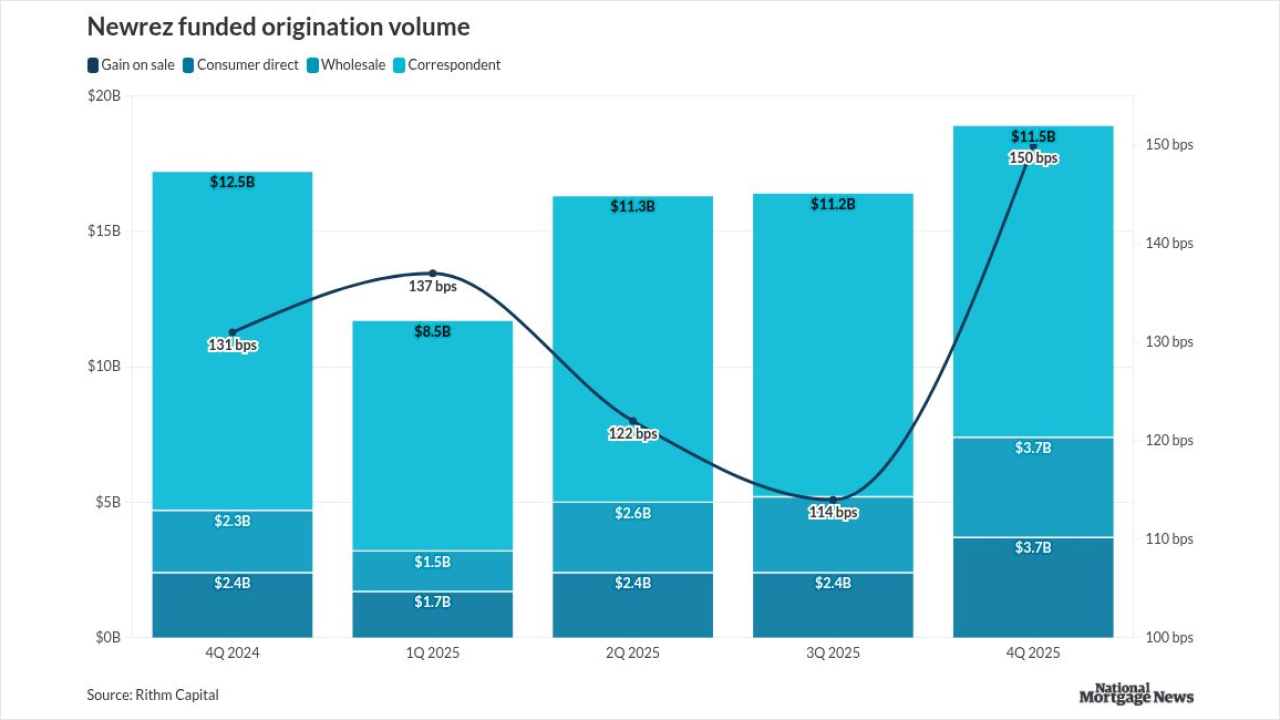WE’RE HEARING independent mortgage bankers need to do more to cut expenses to keep profits from sliding any further.
“Obviously production declined significantly and margins compressed, but what really jumped off the page is people didn’t have great control over their expenses,” says Trevor Reinhart, manager of advisory services at
Net income declined 60 basis points on a consecutive quarter basis as overall production fell about 12%, Richey May data show. This left independent mortgage bankers overall with a net income near zero on average, according to Reinhart.
The exception is the retail channel, where third quarter net profitability was up 32 basis points compared to the second quarter. Home loan originators with strong builder affiliations or referrals boosted this group’s profitability, he says.
Builder connections have helped these companies offset a 42% drop in refinancing with home purchase originations. “A lot of folks who were very refi-driven felt like it was like a spigot that got shut off,” says Alice Alvey, senior vice president of mortgage services provider Indecomm/Mortgage U.
Business lines that tend to be natural hedges in a cyclical shift to higher rates such as purchase gains and servicing gains did help some players, says Reinhart. Mortgage servicing rights increased seven basis points in value during the third quarter, and
Inordinate expenses outweigh these gains.
“With the regulation there’s definitely an increase in the compliance, so that kind of line item is significantly higher than in the past,” Reinhart says.
“There are whole areas of expenses that were not there before,” says Brian Koss, EVP at Mortgage Network, an East Coast-based purchase-focused retail mortgage banker. “You’ve added so many levels of double- and triple-checks, and your IT costs are through the roof.”
Information technology upgrades can help reduce some processing and other operational costs but offsetting the reductions are increased costs in other areas like legal expenditures, he says.
The lack of third-quarter profits in mortgage banking mean there will be more layoffs going forward, most likely in refi-heavy shops, Reinhart says.
Purchase-focused, retail shops can maintain revenue, but even at these players controlling expenses is a struggle, Koss says. The
Bonnie Sinnock is managing editor of National Mortgage News and editor of Origination News. She has been covering the mortgage industry since 1995.





